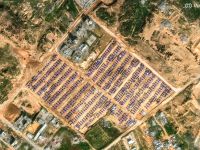More than 150 world leaders were converging in Paris on Monday to start talks on a deal meant to limit man-made emissions and avoid the worst effects of climate change.
Negotiators are expected to hammer out the details of the agreement until December 11, after an initial push from world leaders to lend momentum to a process that has often come short of delivering an international deal.
Some of the stumbling blocks that have frustrated past negotiations, including the position of the world's two largest emitters, China and the United States, have made slow progress.
US President Barack Obama has indicated a desire to reach an agreement despite a recalcitrant Congress, and China has committed to limiting its carbon intensity by 2030.
But issues that plagued the 1997 Kyoto Protocol could still pose difficulties, including the relative responsibility of countries that did not contribute to the bulk of emissions in the past but are on track to becoming the biggest polluters.
Domestic politics in the US could again become an issue, despite the efforts of the Obama administration.
The summit starting Monday will also be aimed at finding funding to help countries already affected by climate change cope with rising seas and more frequent droughts, including programmes meant to incentivize renewable technology and encourage sustainable development.
Some 20 major countries are expected to announce an initiative to double research budgets for renewable energy alongside technology magnate Bill Gates, who has promised broad private support for the work.
Indian Prime Minister Narendra Modi and French President Francois Hollande will also launch an international solar alliance to promote solar power adoption globally.








